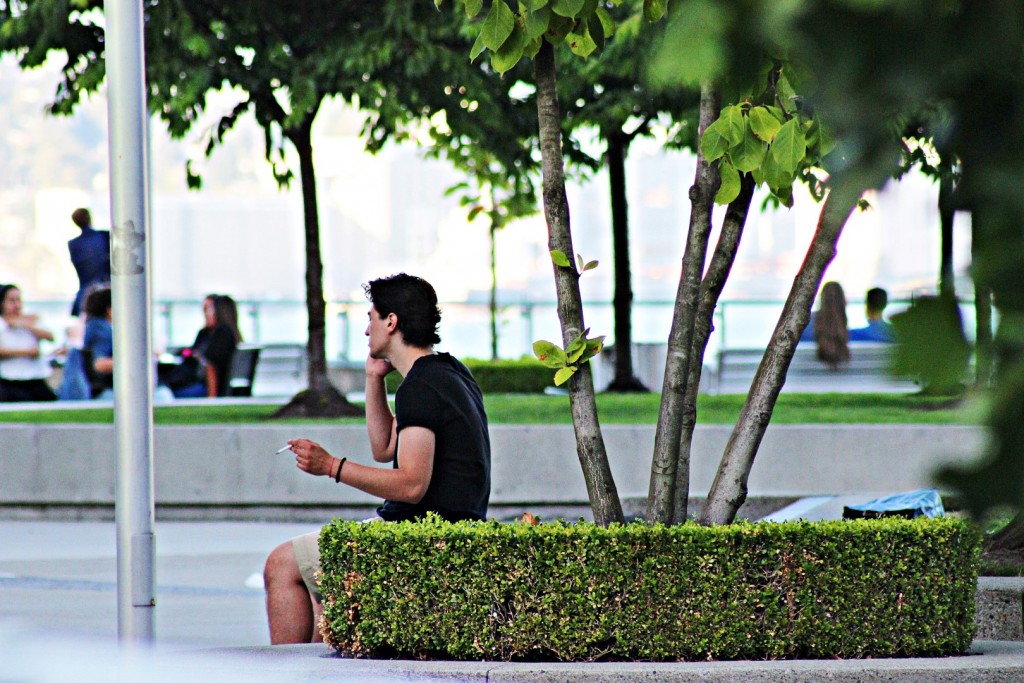
Regulation in a post-prohibition era
By Cazzy Lewchuk, Opinions Editor
Marijuana will (likely) become legal in Canada in just a few months. As walking down any street in Vancouver can demonstrate, many already choose to light up in public. Should this kind of behaviour be condoned once it’s no longer technically illegal to smoke the green stuff?
Smoking cigarettes in public is perfectly legal, if only in dedicated areas and away from prohibited zones, which vary constantly from city to city. When weed becomes legal, one assumes the same rules as cigarettes will apply. Perhaps they should be stricter. Is it all right to smoke marijuana in a public smoking area, or should it be limited to private property?
The regulation of marijuana is a heavy debate. Once legal, who should be allowed to sell it? Should it be treated like liquor and only sold in designated substance stores? Should it be like cigarettes, and freely available in retailers, yet still regulated? Or should simply any store willing to carry the product be allowed access?
The top priorities in legalizing pot include limiting and preventing access of it by minors, as well as controlling the illegal drug trafficking trade that profits heavily from pot sales. Many opponents of unrestricted legalization rightfully argue that safety is a prime factor in regulation. If there are no restrictions on weed entering the public, it’s easy for unethical sources and dealers to get involved, and you’d better believe the feds want their tax cut.
Generally, marijuana advocates encourage little regulation when dealing with legality. They believe that, as a plant, marijuana should be possessed and exchanged by anyone who wants to own it, without government regulation. Having the state control who’s allowed to possess it, or limit how much weed they can have with them, is seen as an unethical “New Prohibition.”
For my own part, I support unregulated marijuana legalization for logistical and red tape reasons, if nothing else. It’s not true to say that marijuana has zero side effects or potential risks, but it’s definitely safer than alcohol and cigarettes. Marijuana grows naturally, and anyone with seeds and the right lighting can technically grow it (though not legally). People get rich and screw others over due to weed being illegal and its connection to the black market. In many cases, they’ll even spike it with other, incredibly dangerous substances, even fentanyl. I suppose there must be some regulation to prevent that kind of thing from happening, but I would hope to see it be as limited as possible. The government regulating the price or THC content of marijuana only serves to strengthen the black market… and that’s before taxes come into the picture.
As anyone in Vancouver knows, a lot of people already use marijuana. Legalization will help to stabilize and make the market more accessible, while also encouraging safety and responsible use. Many marijuana advocates specifically encourage proper knowledge of the drug and tips for safer usage, such as being careful with edible dosages. Marijuana has many recreational and medical benefits, and many who work in the (semi-illegal) market have already been learning about it for years, or even decades.
Overtly controlling the weed market only serves to further discourage the useless legal battle. Legalization means legalization, not “strictly controlled and regulated.” If you want to have a whole pound of pot with you at a time, that’s your business. If you have a store, or just want to sell a bit to a friend, that’s your business. It’s just a plant, and it’s already widely available.
Plus, if possession is legal, it can be almost guaranteed that marijuana crime will virtually disappear.

